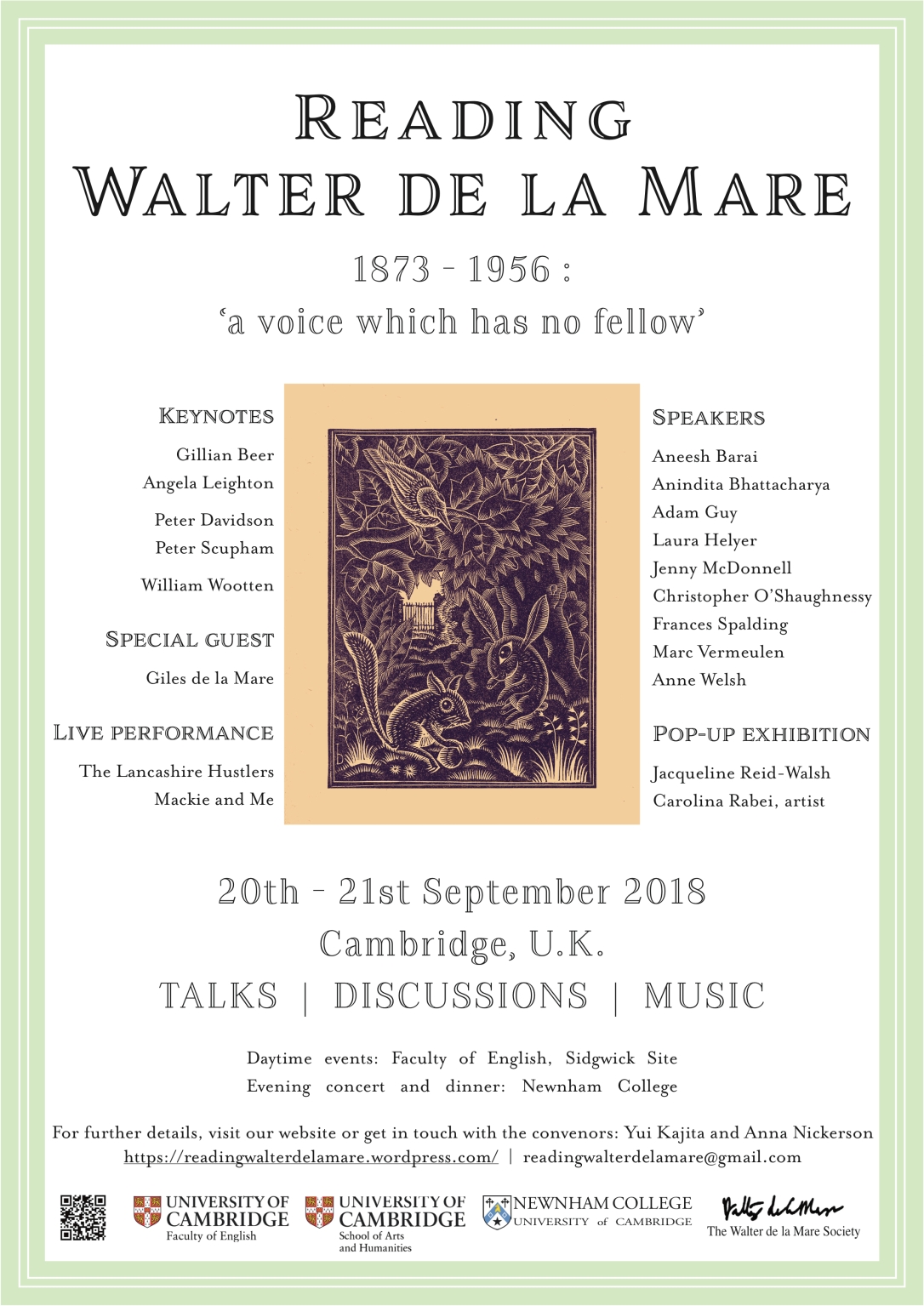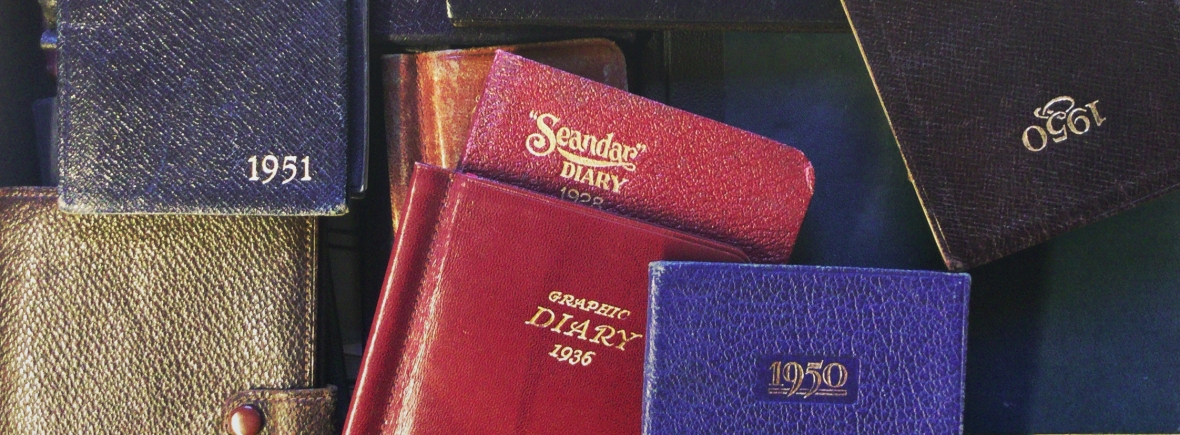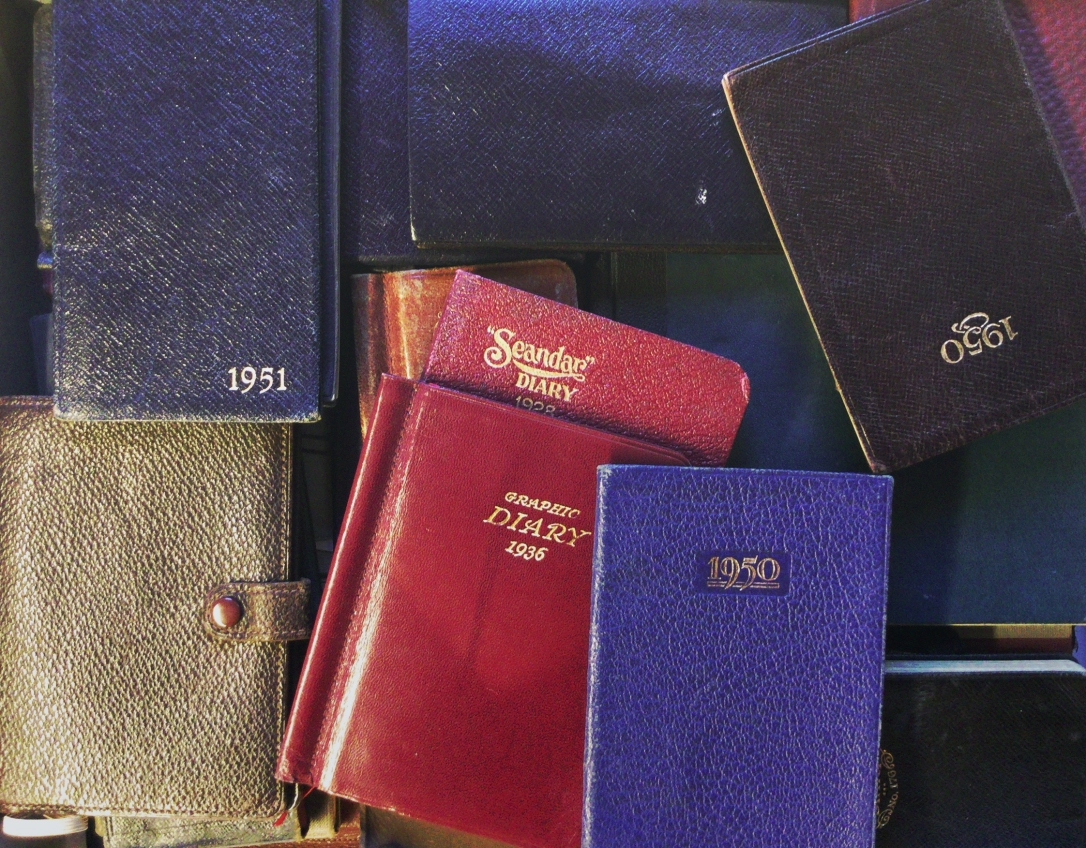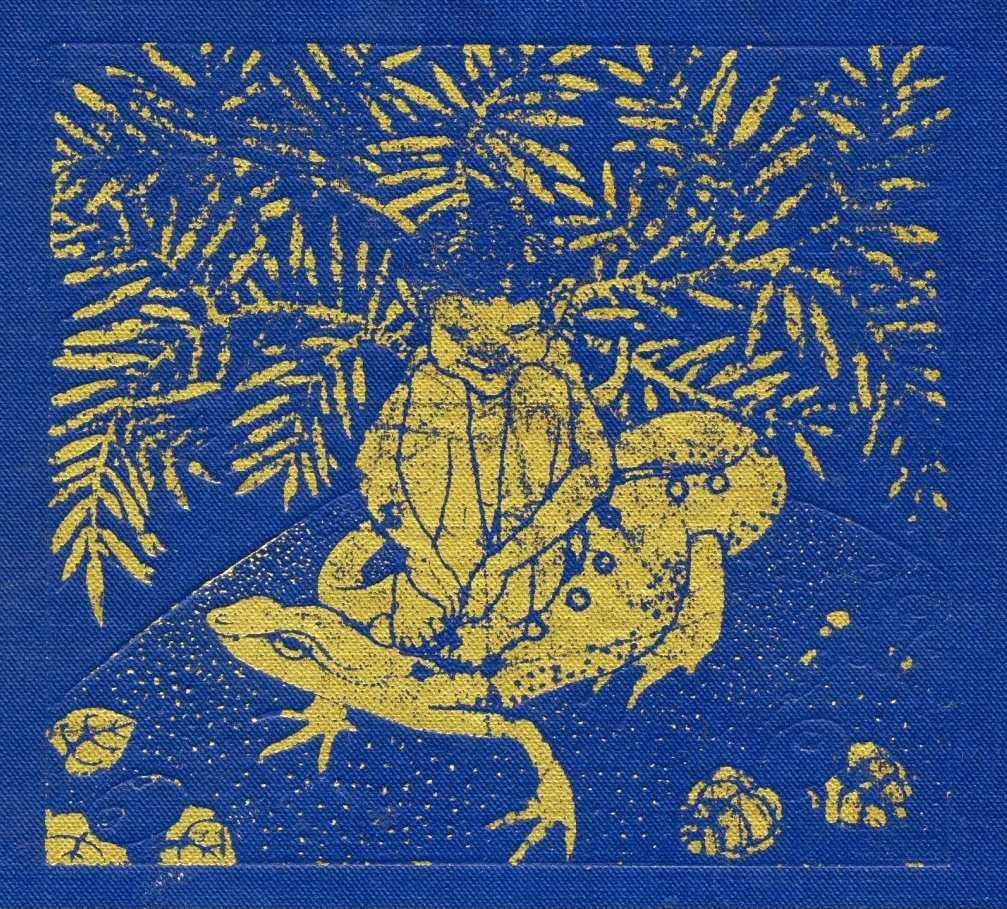About
Reading Walter de la Mare, 1873-1956:
‘a voice which has no fellow’
By whom, and by what means, was this designed?
The whispered incantation which allows________.
Free passage to the phantoms of the mind?______.
. . ._________________
By the delicate, invisible web you wove —________
The inexplicable mystery of sound._____________.
— From T. S. Eliot, ‘To Walter de la Mare’
Walter de la Mare’s ‘whispered incantation’ echoes on in the memories of countless readers from the late nineteenth century onwards, many of them having memorised his poems by heart as children. It ‘sticks like a splinter in the mind’ was how Angela Carter described his novel Memoirs of a Midget (1921): ‘lucid, enigmatic, and violent with the terrible violence that leaves behind no physical trace’. Elizabeth Bowen claimed that there was ‘something perfectly distinctive and different about the de la Mare sentence, written or said’. As for de la Mare’s poetry, it gave Virginia Woolf a ‘shock of surprise’ when she encountered it by chance; his was ‘a voice which has no fellow’. Deemed ‘one of the best of the best’ by Robert Frost, de la Mare initiated W. H. Auden and a throng of others into poetry through his inimitable anthology, Come Hither (1923); and Auden never ceased to admire ‘the delicacy of his metrical fingering and the graceful architecture of his stanzas’. J. H. Prynne, in an apparently impromptu poetry reading on Chinese national television in 2014, chose de la Mare’s ‘The Listeners’ for his text — a poem which, on his deathbed in 1928, Thomas Hardy exclaimed to be ‘possibly the finest poem of this century!’ De la Mare remains a noteworthy presence for scholars of writers as diverse as Edward Thomas, Katherine Mansfield, and Vladimir Nabokov. ‘One of the masters of whispering’, as George Steiner calls him, de la Mare is also an important figure in scholarly accounts of supernatural and fantasy literature. Especially in the last decade, there has been increasing critical appreciation for the breadth and significance of his oeuvre.
During the ‘revolutionary decade between 1912 and 1922’, writes Peter Howarth, ‘British poetry has been irrevocably changed’ by the ‘poetic styles and cultural values’ introduced by modernism. Pointing out the false dichotomies that this generated, he argues for the need to ‘give the non-modernist poets a place on their own terms’. This two-day conference aims to re-evaluate de la Mare’s place in literary history; to read his work on its own terms; to consider what it meant for him to write as he did during this turbulent decade and on into the mid-twentieth century; and to explore the ways in which the legacy of de la Mare’s writing might challenge current conceptions of literary ‘modernism(s)’.
‘Reading Walter de la Mare’ will explore all aspects of this prolific writer — poetry, prose fiction, plays, essays, anthologies, and archives — through wide-ranging talks, and there will be plenty of opportunities for discussion. In the evening concert, ‘Singing Walter de la Mare’, the musicians will transform de la Mare’s words in new interpretations of his poetry, which they will be performing live for the first time.
♦
Dates: Thursday 20th – Friday 21st September 2018
Location: Faculty of English, 9 West Road, Cambridge CB3 9DP (daytime events)
Newnham College, Cambridge (concert and dinner)
Registration: Click here for details and a link to the booking form.
♦
Keynote Speakers
Gillian Beer
Angela Leighton
Peter Davidson
Peter Scupham
William Wootten
Panel Speakers
Aneesh Barai
Anindita Bhattacharya
Adam Guy
Laura Helyer
Jenny McDonnell
Christopher O’Shaughnessy
Carolina Rabei
Jacqueline Reid-Walsh
Frances Spalding
Marc Vermeulen
Anne Welsh
Special Guest
Giles de la Mare
Find out more about the talks here.
The full programme for the two days can be found here.
♦
Performers
The Lancashire Hustlers – Brent Thorley and Ian Pakes
Mackie and Me – Adèle Paxton and Dennis McCorkle
Find out more about the concert here.
♦
Conference Organisers
Yui Kajita and Anna Nickerson
(Ph.D. Candidates in English, University of Cambridge)
readingwalterdelamare@gmail.com
♦
Acknowledgements
This conference is supported by the School of Arts and Humanities, the Faculty of English, and Newnham College at the University of Cambridge, as well as the Walter de la Mare Society.

Featured image: Pocket and appointment diaries, D15-16, Walter de la Mare Papers, Special Collections, Bodleian Library, University of Oxford. (Photograph taken by Yui Kajita.)



